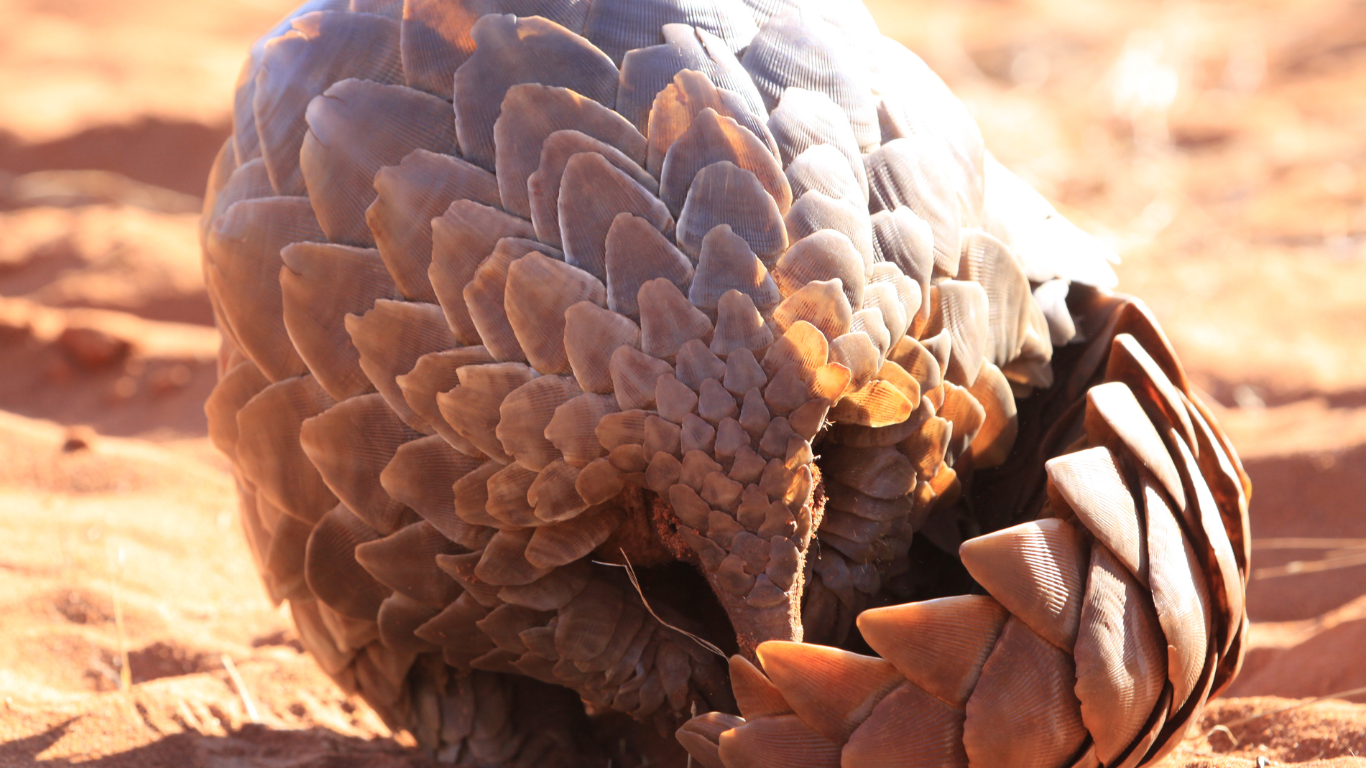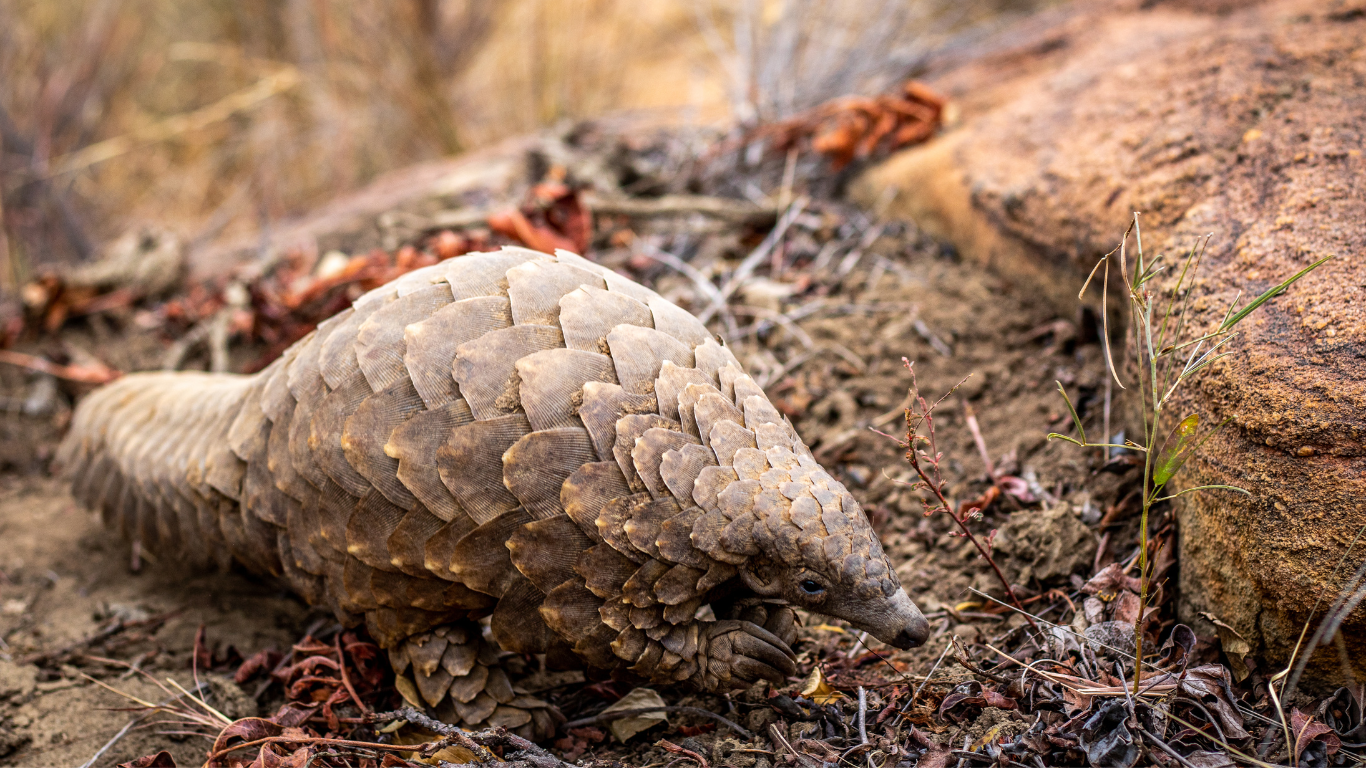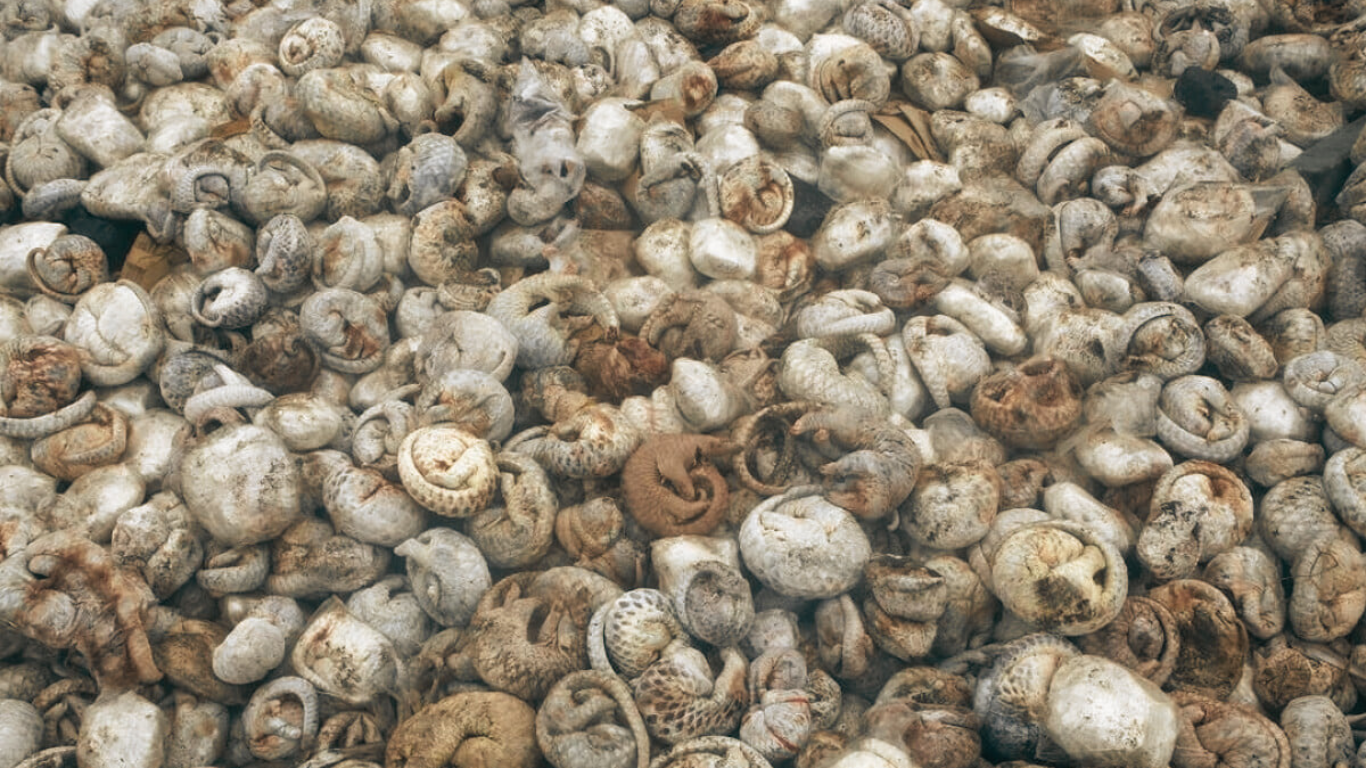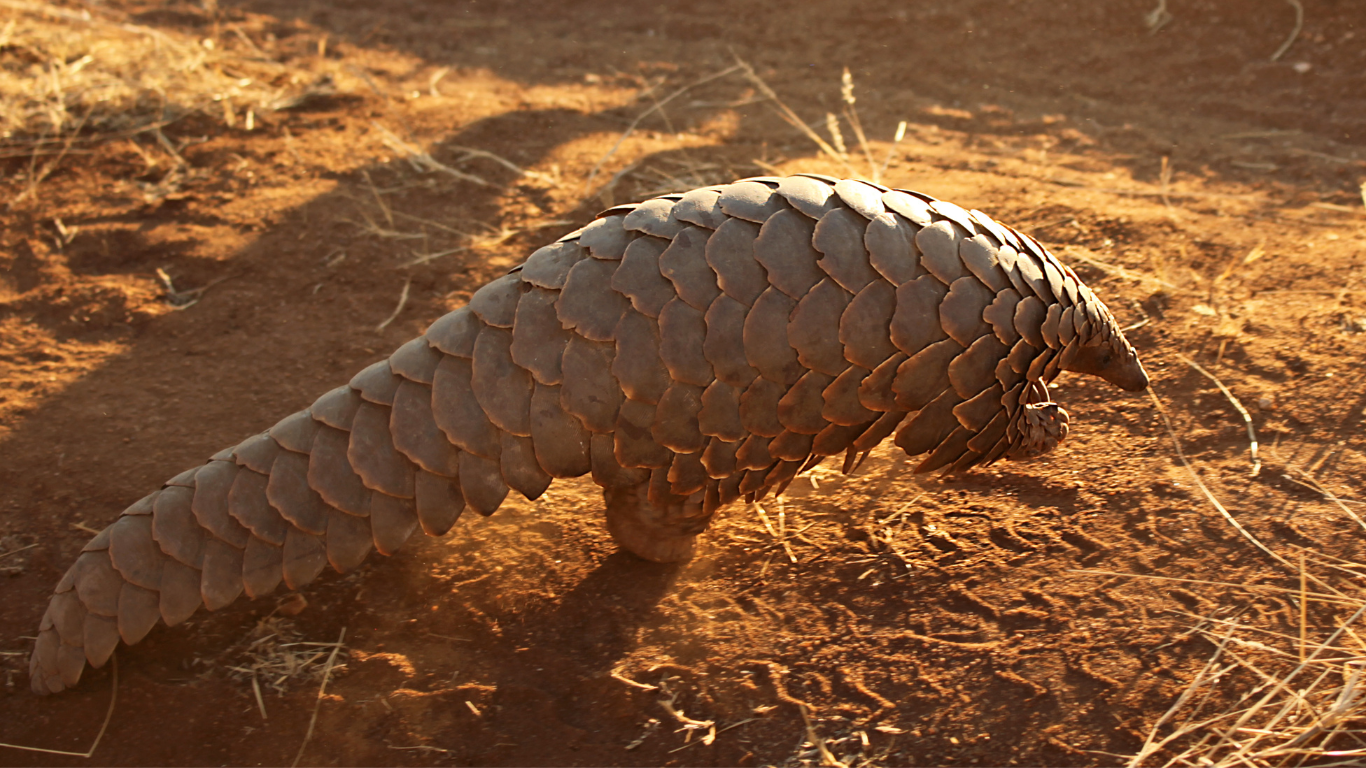Pangolins
Pangolins are the world’s most trafficked animal, accounting for over 20% of the global trade in animals and their parts.
Between 2014 and 2021, over 8.5 million pangolins were poached in Africa and sold on the black market to feed the growing demand for their scales and meat.
Pangolins are particularly sought after in Asia as a form of ‘traditional Chinese medicine’ (TCM), with people believing that their scales can cure complaints like arthritis and infertility. There is no scientific evidence that pangolin parts offer any health benefits. Their meat is also considered a delicacy and a status symbol.
Pangolins are some of the most elusive animals in the wild.
Shy, nocturnal pangolins live on a diet of insects and have protective keratin scales covering their bodies – the only mammals in the world to possess scales. These scales account for around 20% of their total weight.
There are eight recognized species of pangolins, four of which are found in Africa and four in Asia. In Africa, you’ll find the black-bellied and white-bellied pangolins, the giant ground pangolin, and the Temminck’s ground pangolin. Asia is home to the Indian, Philippine, Sunda and Chinese pangolins.
All of these species are recognized as threatened by the International Union for Conservation of Nature (IUCN), with their conservation statuses ranging from vulnerable to critically endangered.
Additionally, each species is listed on the Convention on International Trade in Endangered Species of Wild Fauna and Flora (CITES), banning any of them from being commercially traded, domestically or internationally.
In the last few years, two possible new species of pangolin have been discovered: the Asian mysterious pangolin and the Indo-Burmese pangolin. Scientists need to do more research to fully understand if they can be classified as distinct species.

Quick facts about pangolins
Pangolins’ scales are made up of keratin (the same as hair, toenails and horns), and act as armour against predators.
Pangolins are nocturnal and insectivorous, and use their long, sticky tongues to capture ants and termites.
When startled or threatened, pangolins curl their bodies into a ball, using their sharp scales to cover their vital organs and head.
Pangolins give birth to one to three babies at a time, which remain with their mother for up to two years. Otherwise, these scaly animals are entirely solitary.
Pangolins and armadillos may look similar, but they are not related. They just happened to develop similar adaptations.
Pangolins are born with their scales, which at birth are soft and pliable, and naturally harden over time.
When threatened, pangolins emit a malodorous chemical from their anal glands, much like skunk spray.

The true scale of pangolin trafficking may never be known.
During the last decade, global authorities have seized over 370 metric tons of illegal shipments of pangolin scales. This amounts to millions upon millions of slaughtered pangolins.
However, because the trade operates illicitly, this number is likely a significant underestimation of the true figure.
There are ongoing efforts to uncover the vast network of trade and shipments throughout West and Central Africa and their destinations in South and Southeast Asia.
The scope of this underground trade is extensive and places immense pressure on pangolin populations in both Asia and Africa. As pangolin numbers decrease, the species becomes all the more sought-after, and criminal activity grows more sophisticated and ruthless.

Solitary, timid and nocturnal, pangolins are easy targets for poachers
Because pangolins are relatively widely distributed, historically live close to human settlements, and roll into a ball when threatened, they are easy targets for poachers. Criminals simply collect them by hand, with little effort, making pangolins some of the easiest, and therefore most vulnerable, animals to poach.
How you can help protect pangolins:
Education and awareness are powerful tools in fighting the myth that animal products have life-saving potential, whether it be a pangolin’s scale or a rhino’s horn. You can help by educating those around you, and dispelling these dangerous myths about dwindling animal populations.
You can also support our work. Animal Survival International supports several anti-poaching, rescue and rehabilitation projects in Africa and Asia, including the first-ever pangolin ICU and nursery in Lekki, Nigeria, and the establishment of a mobile rescue clinic and ongoing veterinary care for orphaned and injured pangolins in South Africa.

